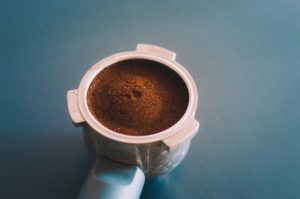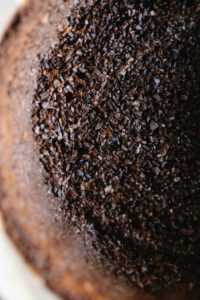How To Use Coffee Grinds For Gardening
Used coffee grounds are a great way to enhance the soil in your garden. The cheap, natural ingredient is a great way to add nutrients and oxygen to the soil. You can even use them as a natural pesticide by using them as a mulch. If you’ve been thinking of using coffee grounds in your garden but aren’t sure how to go about it, keep reading! The following tips will show you how to use coffee grinds for gardening.
Many gardeners are aware of the benefits of using coffee grinds in their flower beds. Not only do they add nutrients to the soil, they also serve as a natural deterrent for pests. Slugs and snails are common problems in the garden, and the destruction they cause to plants is not only upsetting, but it can also be harmful to the environment. In addition to preventing pests, coffee grounds are said to be anti-microbial and will attract beneficial worms to your compost heap.

Coffee grounds are also an excellent organic matter for your garden soil. The coffee grinds help improve the water-holding capacity of the soil. This increases water-holding capacity and allows plants to thrive in moist soil. This means less watering for your plants and more energy conservation. If you’re looking for ways to reuse coffee grinds in your garden, you should definitely try these suggestions! If you’re not sure where to start, here are some benefits of using these grounds in your garden. 
Coffee grinds can be added to the soil by scratching them into the soil top several inches. You can also add them to the soil by adding them to the compost pile. This will add nitrogen to the soil and help plants grow better. The added bonus is that coffee grounds are biodegradable. This makes them an excellent mulch for your garden. If you don’t have a compost bin, simply place the coffee grounds in a bucket.
When used properly, coffee grinds can help improve soil tilth. By using them as a soil amendment, they are an excellent organic source for the garden. They contain about 2% nitrogen by volume, which is vital for plants. While coffee grounds will not immediately contribute nitrogen to your soil, they will be released slowly over time. This helps your plants grow better. You can use these grounds as a mulch on your flower beds.
 Besides their amazing benefits in the kitchen, coffee grinds are also excellent for gardening. Using coffee grinds in your garden will help you add nutrients to your soil. Since coffee grinds are free organic matter, you can even collect and use them at home to fertilize plants. By mixing the coffee grounds with soil and other organic matter, you’ll be able to reduce the amount of fertilizer you need to buy. This will also make your gardening more environmentally friendly.
Besides their amazing benefits in the kitchen, coffee grinds are also excellent for gardening. Using coffee grinds in your garden will help you add nutrients to your soil. Since coffee grinds are free organic matter, you can even collect and use them at home to fertilize plants. By mixing the coffee grounds with soil and other organic matter, you’ll be able to reduce the amount of fertilizer you need to buy. This will also make your gardening more environmentally friendly.
Coffee grinds are a great source of nitrogen, which is essential for healthy soil. It can be a valuable fertilizer, especially if you use them on your garden benches. The ground coffee is a great way to improve the soil in your garden. In addition, you can use leftover coffee grounds for composting food waste, too. The extra nitrogen from the coffee helps your plants grow, and will prevent harmful insects. The same principle applies for other plants, including lawns.
When it comes to the benefits of coffee grounds in the garden, they can help your plants in a number of ways. First of all, they are a great source of nitrogen in the soil. Another benefit of using coffee grinds in the garden is that they help with the growth of plants. When used in the right manner, they can help with the soil’s moisture retention capacity. In addition, they can help with weed control.
If you are looking for ways to use coffee grinds in your garden, there are a few reasons you should consider using them. Firstly, coffee grounds are an excellent source of nitrogen for your compost. It is a natural source of carbon and nitrogen. Secondly, it contains a lot of organic matter. Second, coffee grounds add structure to your soil. They are also great weed killers. You can go ahead and give it a try by just saving your used coffee grounds in a special spot each week. Find a container or bin and save the used grinds each day and before you know it you will have a good amount of natural soil helper to use throughout your garden!
